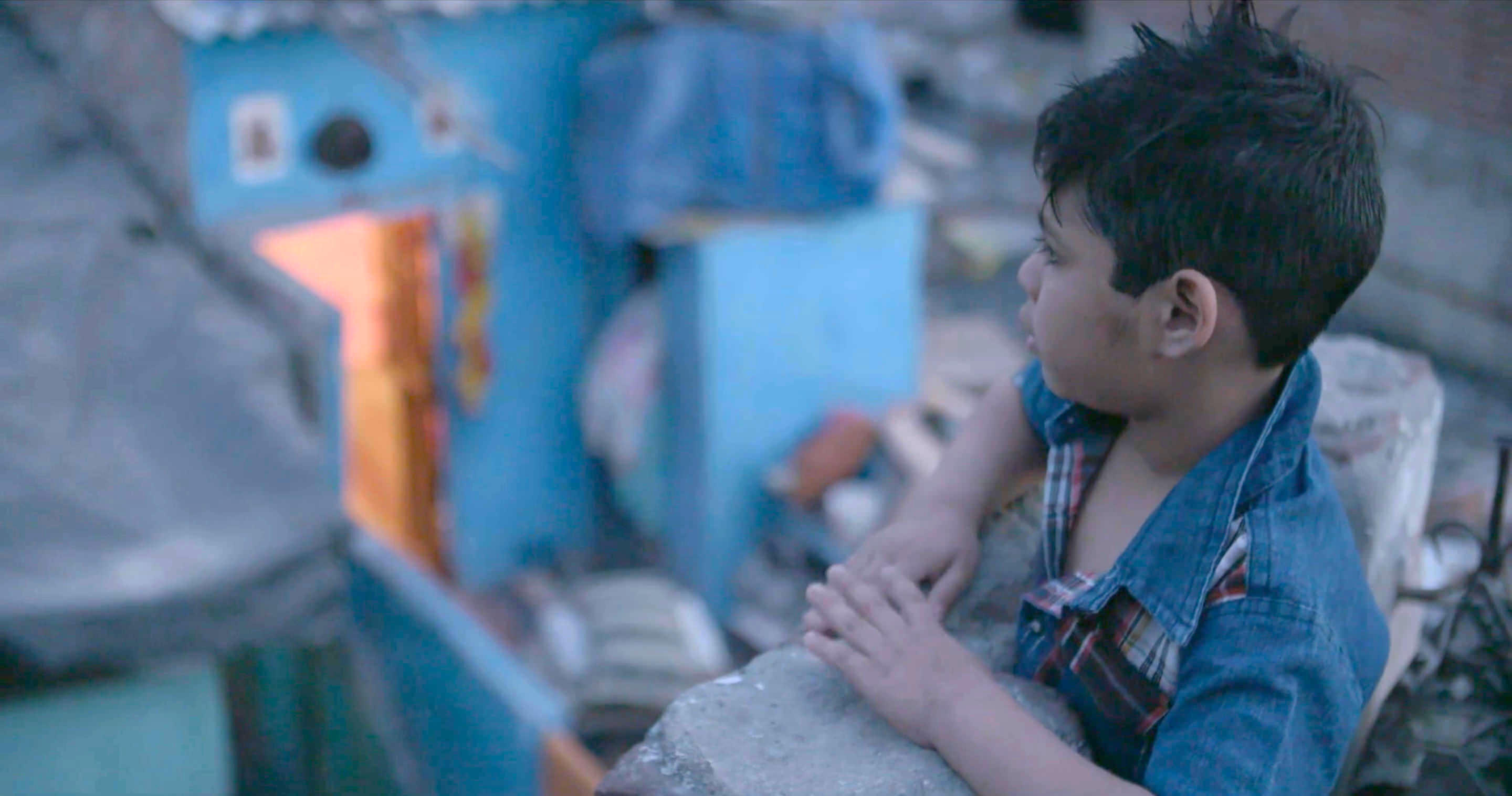
Among the 30 films that were showcased at the Indian Film Festival of Los Angeles (IFFLA) earlier this month, a short film called ‘Laksh’ stood out as a profound piece on human bonds.
The film opens with a close-up of a charming young man with long dark hair speaking fluent Italian, video chatting lovingly with his young Italian son and wife, telling them he’ll be home soon. His location isn’t immediately clear but at the end of the conversation you realize that he is an Indian man visiting his family that he left behind; a family that consists not only of his parents and elders but also his Indian wife and a 7-year old son – Laksh. This isn’t a secret arrangement. It isn’t the story of betrayal or a double life. It is the true story of Sameer, a gypsy man from Kathputli, the largest colony of street performers in the world, who decided to break the cycle of his community life and create a bigger future for his family.
Sameer was married to his Indian bride Poonam at the age of 11 – a common practice in his community. Typically, men here do little other than perform their art at parties and arenas, drink whiskey and happily return to their world. Sameer wanted to give his son more than this pre-determined fate. He moved to northern Italy with big dreams for his family’s future. There, he forged a new life, married for love and had another family. But he lives his life like an open book. He visits his home in India every few years and the film documents the days leading up to his departure. Capturing many gentle moments, the film showcases the infinite human capacity of love, sense of family and our indelible roots.
Director Jennifer Rosen who is as genuine, intelligent and passionate in person as her work reflects, sat down with us and gave us a peek into her incredible journey.
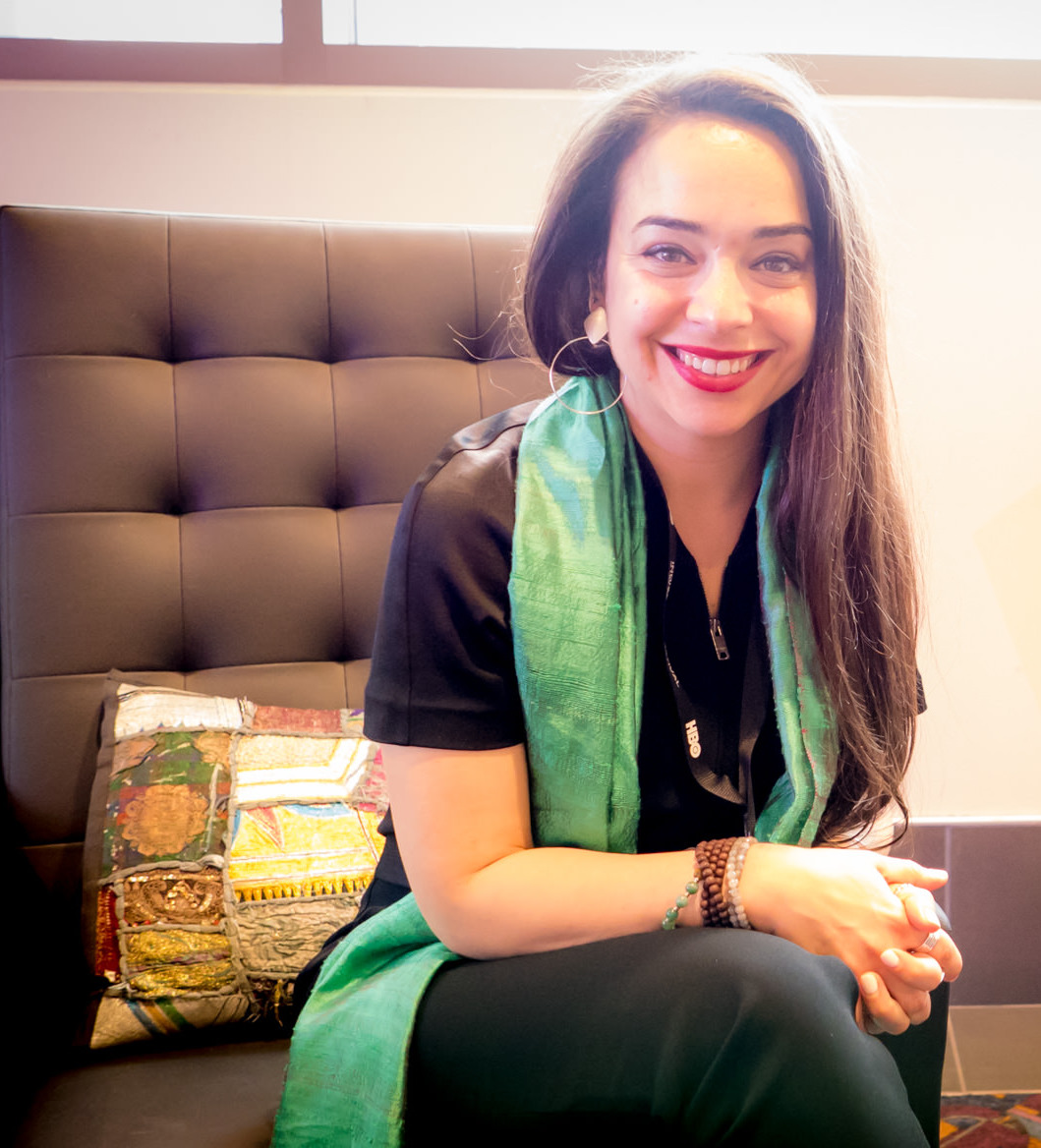
Jennifer, tell us a little about your background as a filmmaker.
I was raised in a household where my parents were very passionate about the arts and cinema. We watched all the classic filmmakers and they really cultivated an appreciation of that in me. I did my undergrad in theater. I left the US when I had an opportunity to go to Belgrade, Serbia for a volunteer program. I was dropped off in an orphanage with 150 children, where I stayed embedded for 8 months. It was a life-altering experience. I then began traveling the world and became very interested in visual anthropology and did my masters in making ethnographic documentaries. I started working as a one-woman band, just having the camera in hand and exploring out of curiosity without any notion of construction or projecting a story onto it.
What sparked your interest in the Roma gypsy community and their roots in India?
First of all, my mom always romanticized gypsies. Some people fear them or have an aversion to them but I always thought that they are spectacular. When I was working in the orphanage, a majority of the children were Roma gypsies and particularly in Serbia, they look Indian. But they don’t know where they’re from. An average impoverished gypsy in Europe doesn’t know of their ancestry. I became very involved with these children. I met a photographer who encouraged me to meet their ancestors in India. And then I met one of the leading professors in Roma studies, based in Manchester, who gave me more background of their journey from India in the 14th century. I then became obsessed about going to India and making my thesis there, which I did.
‘Laksh’ Trailer © Jennifer Rosen
You said that Sameer was immediately on board when you proposed the idea to him. Why do you think he wanted to tell his story?
I think that a lot of people are hungry to tell their story. Many have the fear to do it because there is shame associated with exposing themselves but I think most people have a hunger to be validated – for someone to know what they are going through. I know that Sameer has a genuine desire to help his family and he believes that telling the story is one vehicle to do so. I feel that in the world today there is a trend of being paranoid and fearful that someone is going to exploit you. Sameer’s family isn’t like that. It’s not that they are naïve. They just don’t think that anybody has that power over them. The thing that was most interesting to me was that Poonam really wanted to do this.
“A lot of people are hungry to tell their story. Many have the fear to do it because there is shame associated with exposing themselves but I think most people have a hunger to be validated.”
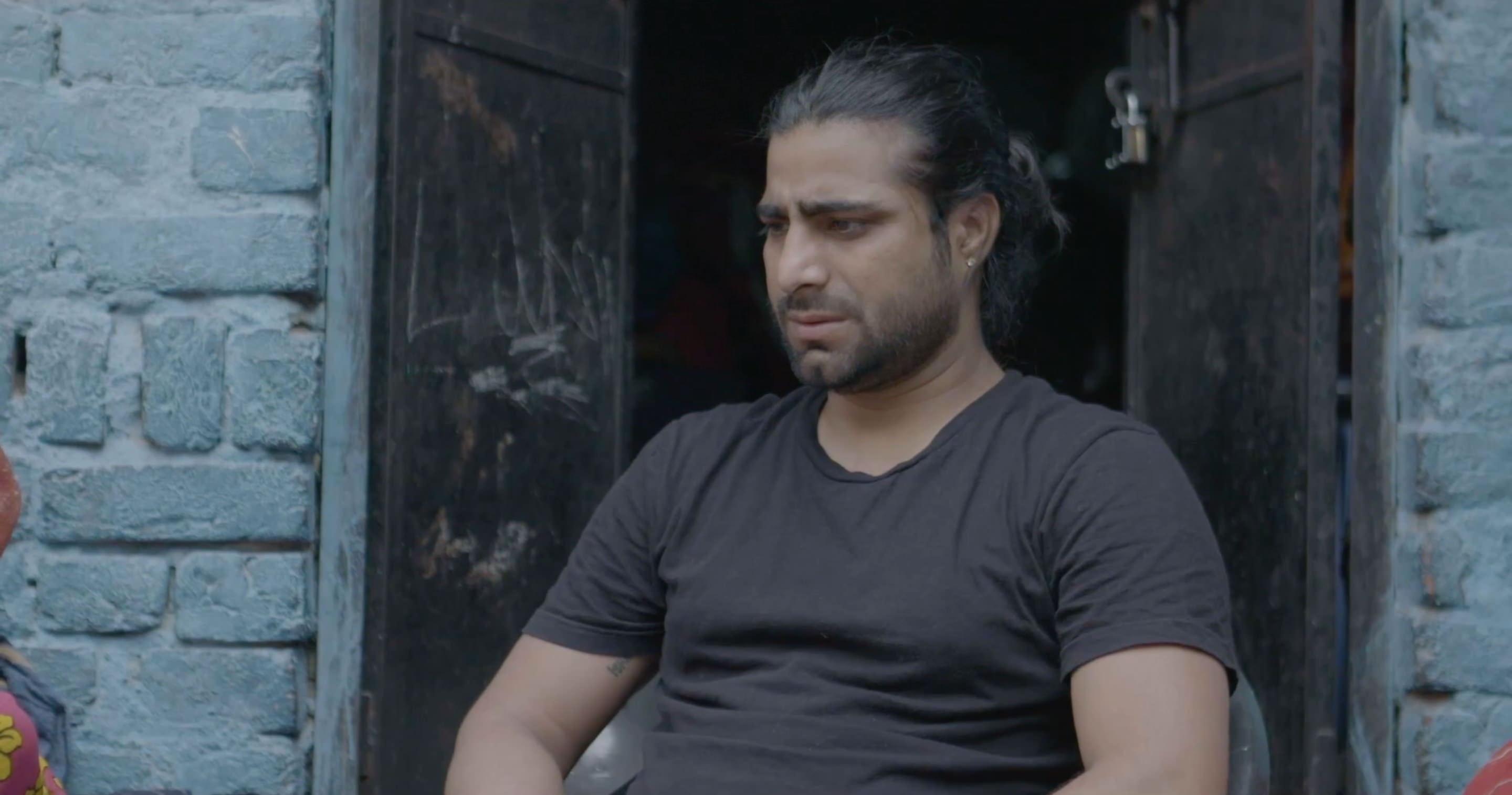
That’s really interesting. Was there any hesitation on Poonam’s part that the film would reveal that her husband has another family in Italy?
The thing that’s amazing about it is that their whole lives are transparent and the whole filmmaking process was transparent. Any time I would call his wife in Italy, she knew the whole idea. And Poonam knew the whole premise. Although she has no education, she’s a very smart person. She did know that as bad as her situation is from an emotional standpoint; from a pragmatic standpoint it is better than most women in her community. Most women have husbands who are doing nothing all day. She has this man who says “I want to have our son get a great education. I have this dream, that dream.” He has the biggest dreams in his entire community. So people look to him as a leader. His parents admire him immensely. His father is a very strong man but even he lets Sameer have the last word.
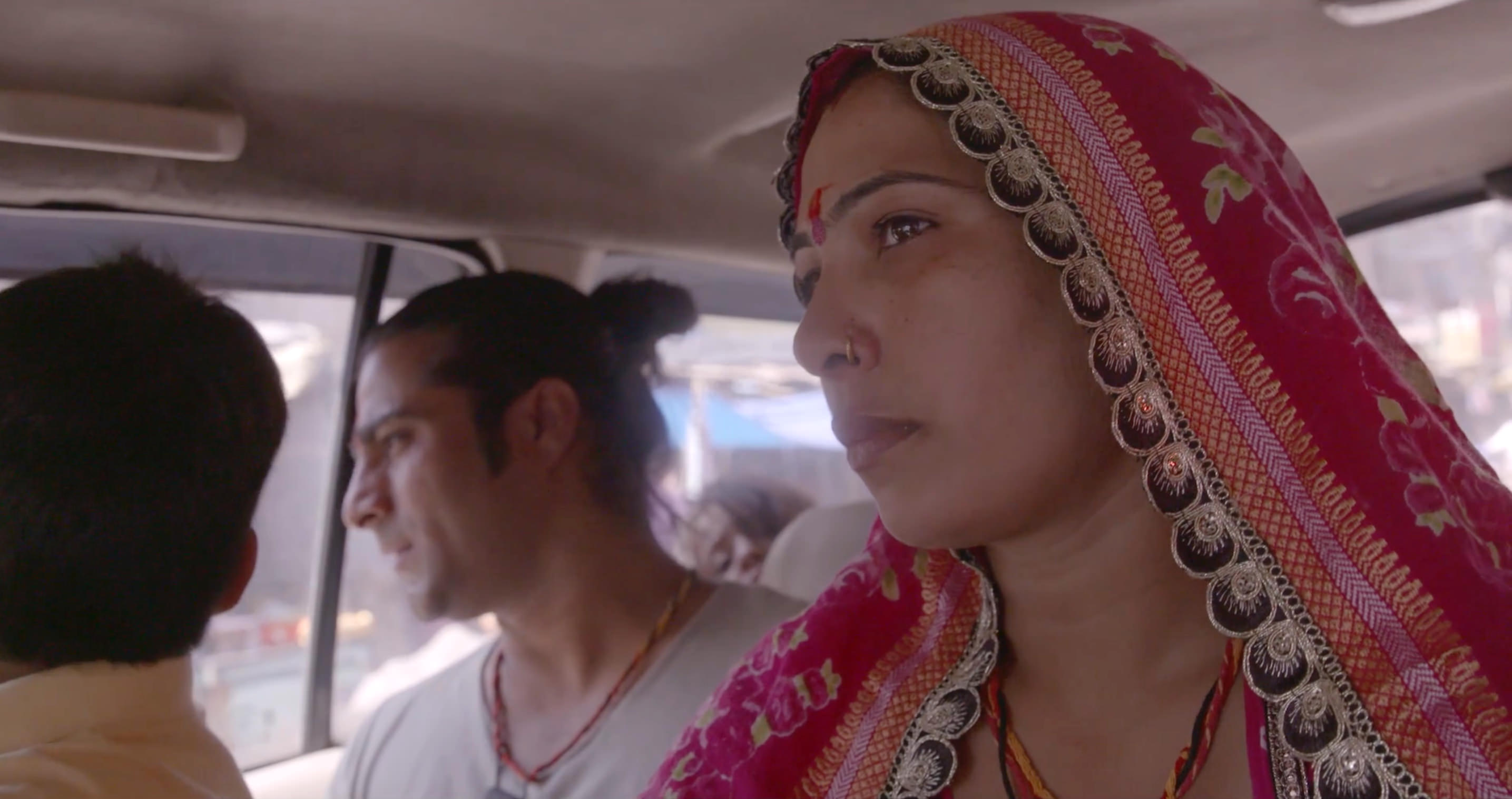
I really liked what you had to say about Sameer’s Italian wife – about her strength. Could you describe what it’s like for her?
I’ve spoken to her but I haven’t physically met her yet. I’m going to. The more I think of this story, I see that it’s really pushing the limits of love. Most people use only a fraction of their capacity of love. Everyone in that family is using almost maximum capacity. She really loves this man and wants to keep the family together. It’s very easy to judge someone but if you step back and see it from her perspective – she is with this man who didn’t choose his situation. He did the only thing he knew how to do because he wouldn’t accept just repeating the life that his parents had lived. Everyone faces that. He just did it under extreme circumstances. Most of us take little baby steps away from our parents. But he had to make a leap and he had no support. So she is there to support him on so many levels.
Sameer has no formal education. How did he learn to speak Italian?
Because he is whip smart! The same thing with English. A vast majority of the people in his community don’t speak English. He just learned it all by ear. He started working at restaurants in the kitchen and then he got connected with a company that hires musicians to perform at Indian weddings in Europe. That’s how he currently makes a living. It is a hard life but it is his dream to have his own restaurant one day.
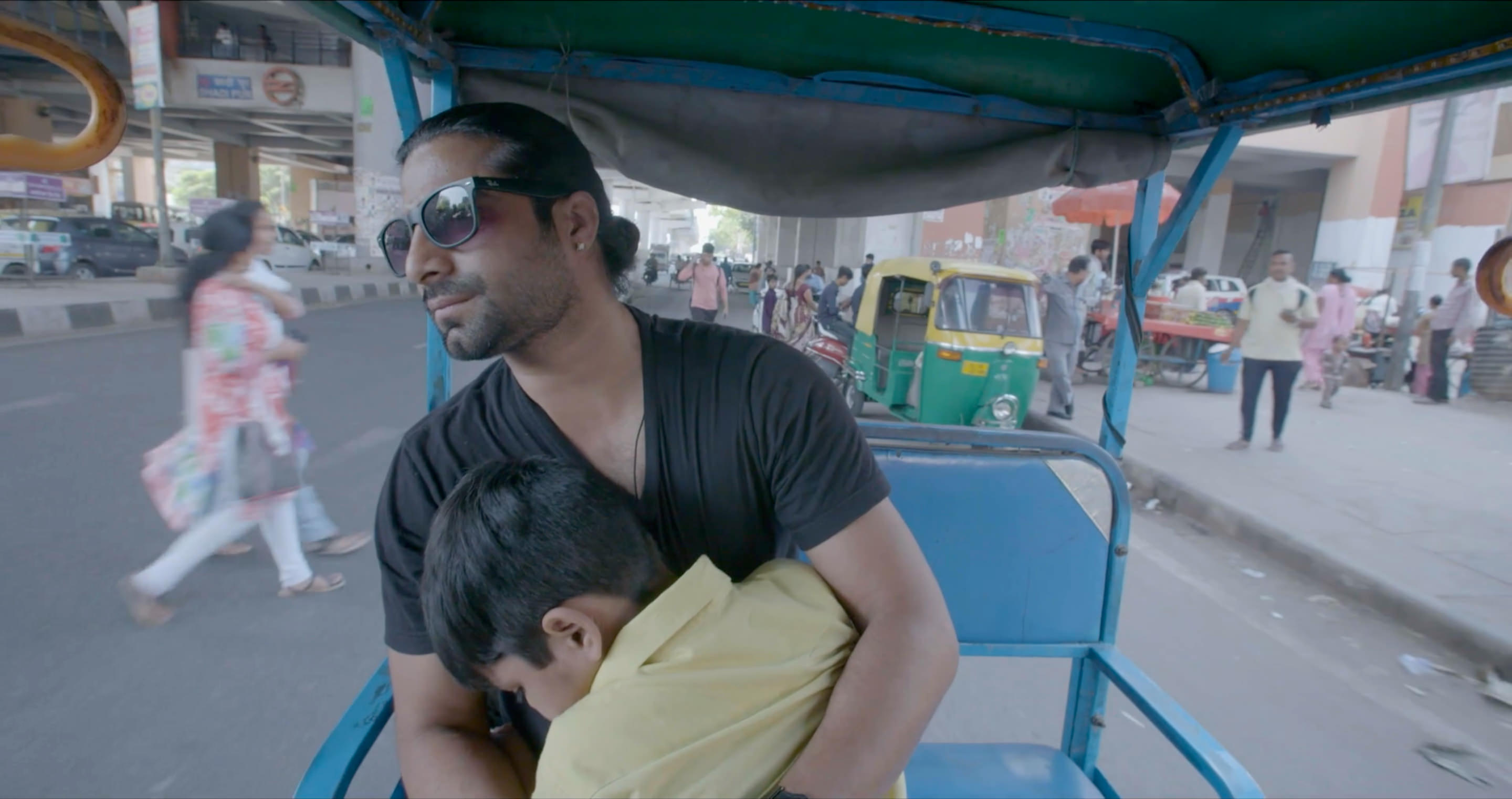
The little boy Laksh is so vibrant and endearing. What was your experience working with him?
When I came to Kathputli and I met Laksh, I can genuinely say that I’ve never fallen in love with a child this way and I love children. It is impossible to translate to film how incredible of a kid he is – so charismatic, funny and affectionate. And also wild as hell. One of the reasons I had to include that scene where he is doing flips – is because there are tons of kids in this community and I didn’t see any other kid flipping! Laksh was always flipping! He is seven but has elements of a teenager in him. At one point we were in a rickshaw and he was very angry with his father and he said “Well, why don’t you just finish this film and you can take your plane and go wherever you have to.” One of the things I saw was that the child lionizes his father. He was like a puppy. Everywhere Sameer went, he constantly wanted to be with him. And I wanted that to be in the film. Also, that scene when he is sitting with Poonam and says “My father is my life” – that is a very profound thing for a seven year old to say. I wasn’t expecting that.
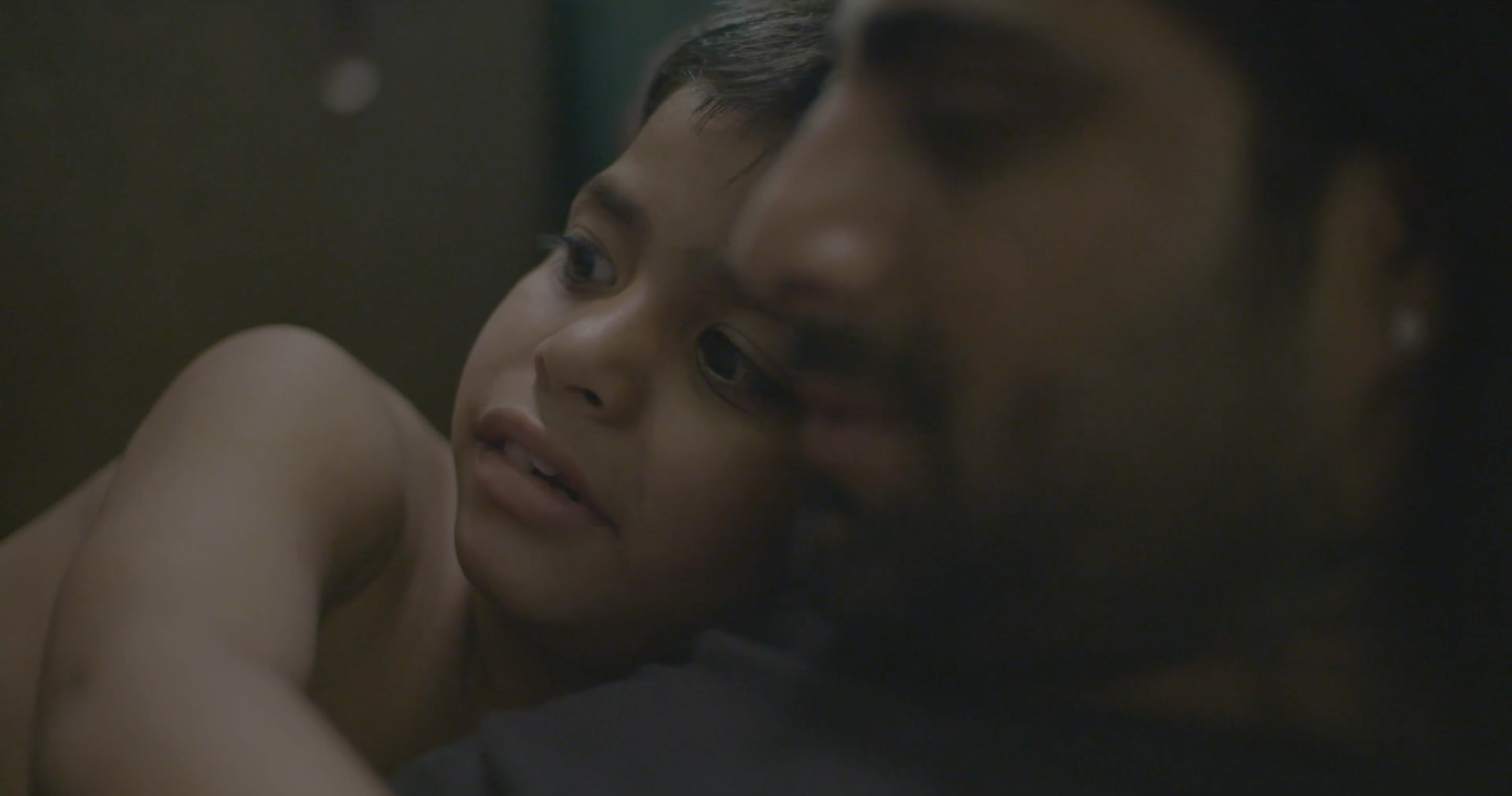
“Don’t care about what will be appealing to the audience or what’s a good story. Find something that you’re genuinely curious about or that you’re absolutely enthralled with.”
What would be your advice to aspiring independent filmmakers?
Don’t care about what will be appealing to the audience or what’s a good story. Find something either that you’re genuinely curious about or that you’re absolutely enthralled with. If it scares the hell out of you, even better. And just make it. Do it in any way possible. If you could actually get funding and an organized team, great. I had so many restrictions while making the film that it made me be very efficient and pushed me to complete it right away. And not overthink perfection because that wasn’t an option. I think that sometimes having limitations is a real gift. I’d say that passion really translates. If you are incredibly passionate about something, you’ll find a way. Also, people will want to help you if they feel that passion oozing out of your body. The right people will come on board. So do things that make you feel vulnerable and just dive into it. It does not have to be perfect.
Jennifer hopes to make a feature-length sequel to ‘Laksh’ featuring Sameer’s life in northern Italy and the bond that holds his two distant worlds together. Her ethnographic documentary on Kathputli called ‘Barah Pal’ was completed in 2009 and is available for streaming on Vimeo. ‘Laksh’ was one of the 10 short films that played at the Indian Film Festival of Los Angeles (IFFLA) 2018.















